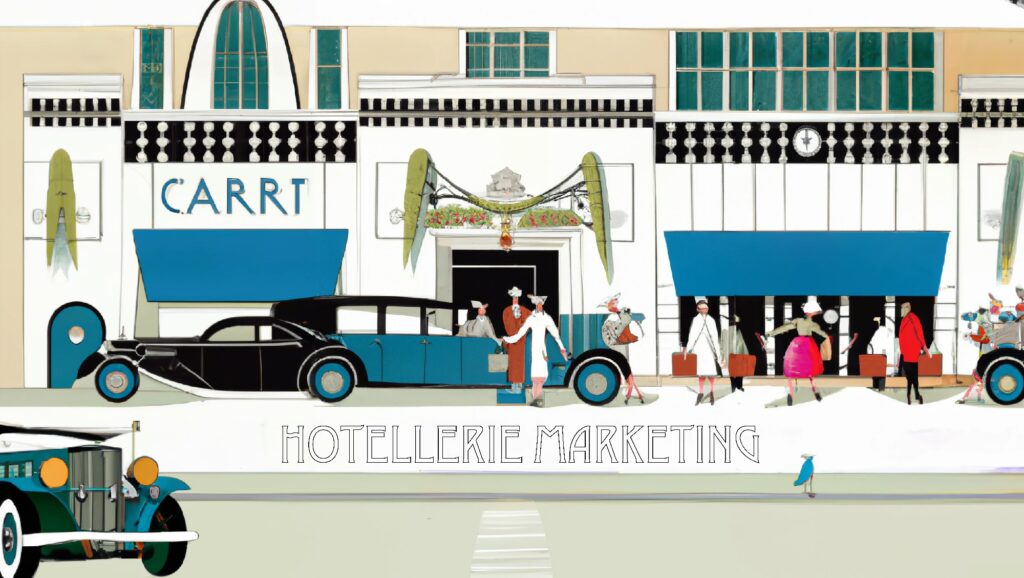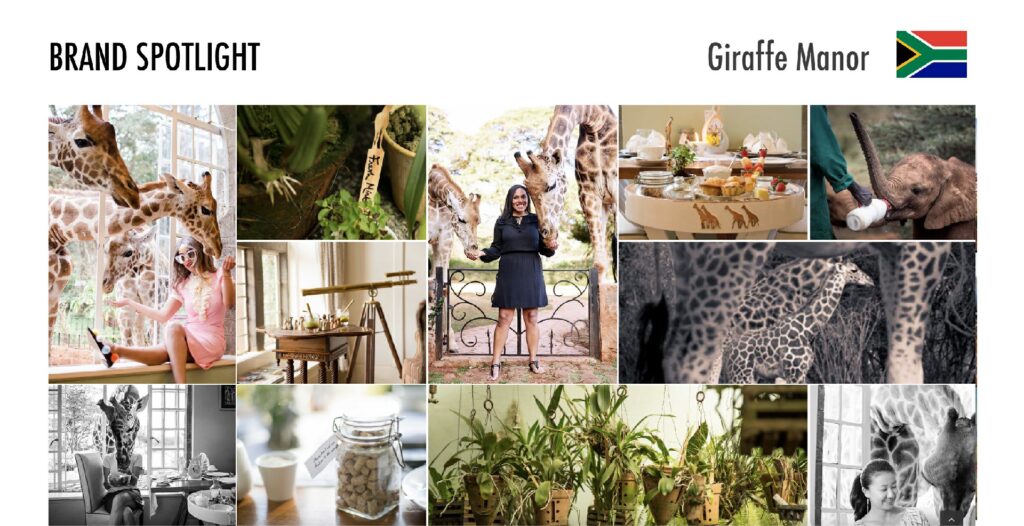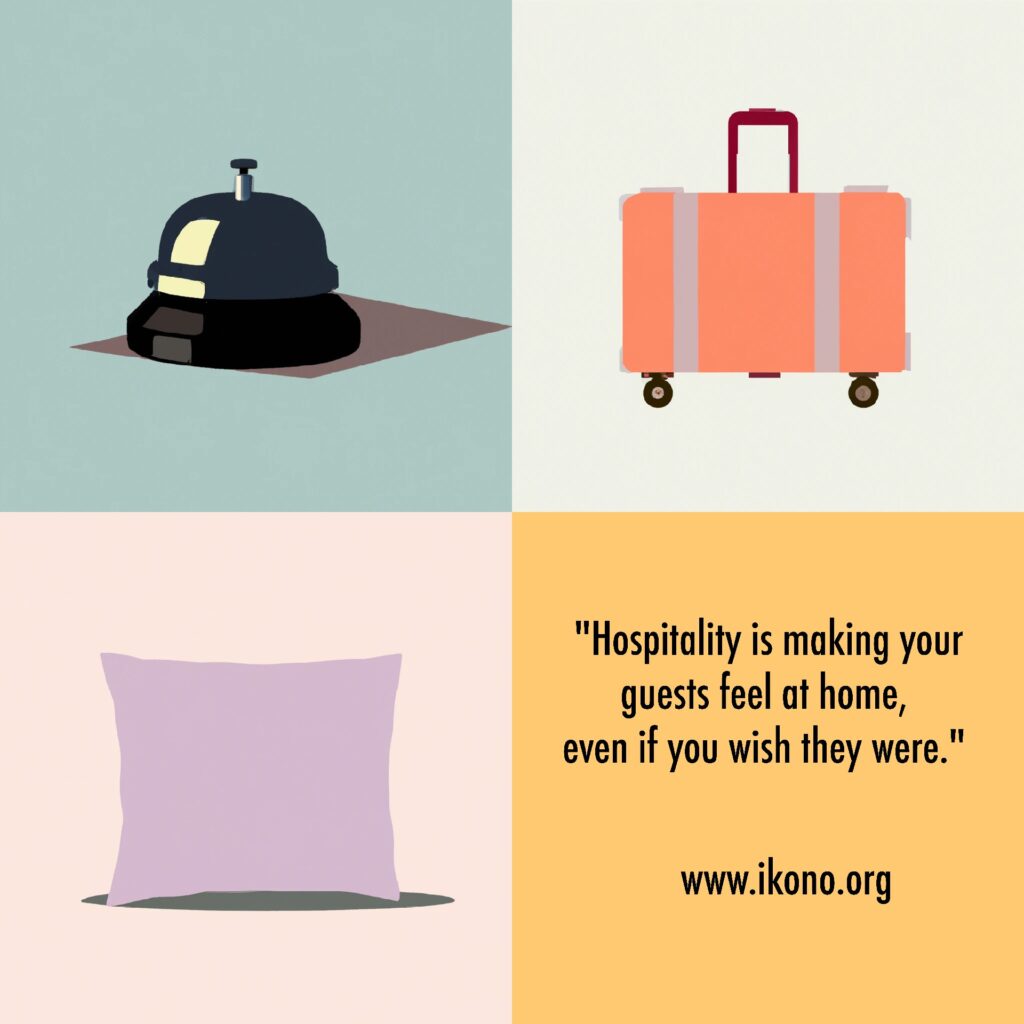
Marketing for Hotels: shaping a hospitality lifestyle brand
The hotel industry has come a long way from its humble beginnings, when travelers sought solace in simple inns and hostels. A significant turning point came with the birth of The City Hotel in New York in 1794, signaling the advent of what we now recognize as hotels. Fast-forward to the 20th century, and hotels transformed into far more than places of rest. The rise of the “hospitality lifestyle brand” altered the landscape, propelling the hotel industry into an era of unprecedented luxury and convenience. Renowned brands like Hilton, Marriott, and InterContinental emerged as pioneers, setting the bar high for guest experience and marking a crucial period for marketing in the hotel industry.

Navigating Challenges and Emerging Stronger
Prior to the COVID-19 pandemic, the global hotel market was booming, with a valuation of $600 billion and a forecasted compound annual growth rate of 4.5% from 2018-2026. Yet, like many other sectors, the industry grappled with the pandemic’s fallout as hotel occupancy rates saw a sharp decline in 2020. Despite this turbulence, the industry has shown resilience and signs of recovery are already visible. Asia, for instance, demonstrates how domestic tourism can play a significant role in bouncing back, providing valuable insights for marketing strategies in the hotel sector moving forward.
A Glimpse into the Future
Emerging markets in the Middle East, Africa, and Asia-Pacific show immense promise, bolstered by a burgeoning middle-class and ambitious tourism initiatives. As we look towards the future, effective marketing for hotels will hinge on several critical factors: innovative thinking, a commitment to sustainability, adaptability to consumer behavior, and harnessing the power of technology. In our next article, we will delve deeper into the industry’s influential trends, from eco-tourism to the reimagining of space in a post-pandemic world, and how these are shaping the future of marketing for hotels.

Trends in the Hotel Industry
The Rise of Sustainable Travel
Sustainable travel is no longer a niche, but a fundamental expectation for the modern traveler. A notable shift has occurred with more and more guests valuing eco-friendly practices and sustainable tourism. In response, hotels around the world are adopting green initiatives, from reducing water and energy usage to sourcing local and organic food for their restaurants. Eco-hotels are also gaining traction, offering a stay that minimizes environmental impact without compromising comfort.
Technology and Personalization
In today’s digital era, the integration of technology in the hotel experience is becoming a norm rather than an exception. Guest personalization is at the forefront of this transformation. From apps enabling self-check-in and digital room keys to AI-powered recommendations for local attractions, technology’s role in enhancing guest experience is undeniable. Innovative use of technology is not just a trend, but a powerful tool in marketing for hotels.
Wellness Tourism
Another trend shaping the industry is the growing interest in wellness tourism. Health-conscious travelers are seeking out hotels that offer fitness facilities, wellness retreats, and nutritious dining options. Retreats and resorts focused on mental and physical wellbeing are flourishing, offering activities like yoga classes, mindfulness sessions, and spa treatments.
Experiential Travel
Experiential travel has risen to the fore, with travelers seeking unique, authentic experiences. Hotels are responding by offering more than just accommodation. Cooking classes with local chefs, art workshops, and cultural excursions are among the offerings, transforming hotels from a place to sleep to a venue for engaging experiences.
Boutique and Luxury Segment
The boutique and luxury hotel segment is experiencing significant growth. Travelers, especially Millennials and Gen Z, are favoring boutique hotels for their unique designs, personalized service, and intimate atmosphere. At the same time, luxury retreats continue to appeal to those seeking high-end experiences, pushing the boundaries of opulence and personalized services.
Embracing Local Culture
Lastly, hotels are increasingly embracing local culture and architecture in their design and experiences, moving away from a ‘cookie-cutter’ approach. This trend reflects travelers’ desire to connect with the local community and culture during their stay.
These trends are painting a new picture for the hotel industry. They’re shaping the future of marketing for hotels, making it crucial for hoteliers to stay updated and adapt their strategies accordingly. Up next, we delve into some intriguing facts about hotels, showcasing the diversity and evolution of this dynamic industry.

Hotel curious Facts
The World’s Oldest Hotel
Did you know that the oldest hotel still in operation today is in Japan? The Nishiyama Onsen Keiunkan in Yamanashi has been serving guests since 705 AD. That’s over 1300 years of hospitality! It’s been managed by the same family for 52 generations, demonstrating an extraordinary commitment to their guesthouse.
The Largest Hotel by Room Count
When it comes to size, the First World Hotel in Malaysia is the world’s largest. This mammoth accommodation boasts an astonishing 7,351 rooms. Think about the scope of managing operations and marketing for a venue of such colossal scale!
Hotel in the Depths of the Sea
The Muraka in the Maldives takes the concept of a room with a view to a whole new level. This underwater hotel suite offers panoramic views of the surrounding marine life. It’s a prime example of how resorts continue to push boundaries to provide unique experiences.
A Hotel Made Entirely of Ice
Every winter in Jukkasjärvi, Sweden, a unique hotel takes shape – the ICEHOTEL. Made entirely of snow and ice, this chilly retreat is a testament to extraordinary design and construction efforts. It also illustrates how novel concepts can create a distinctive brand in the crowded hotel market.
Hotel Icon Turned National Monument
The Raffles Hotel in Singapore is more than just a luxury retreat; it’s a national monument. The hotel, built in 1887, has an illustrious history and is famed for being the birthplace of the Singapore Sling cocktail. It exemplifies how a hotel’s history and cultural significance can become an integral part of its marketing allure.
These facts highlight the incredible diversity within the hotel industry, showcasing how creativity, innovation, and a deep understanding of guests’ desires are pivotal in setting apart a venue in today’s competitive market.

Consumer behaviour in choosing hotels
The Power of Online Reviews
In the digital age, online reviews wield significant influence over consumers’ decision-making process. Many travellers check platforms like TripAdvisor or Yelp before choosing an accommodation, keen to hear about other guests’ experiences. It’s essential for hotels to manage their online reputation effectively, responding to feedback, and using it as an opportunity to improve their service.
Impact of Social Media and Influencers
Social media has reshaped the marketing landscape for hotels. An Instagram-worthy locale or a celebrity endorsement can significantly boost a venue’s appeal. Working with influencers can help a hotel reach a wider audience, demonstrating the powerful convergence of marketing and the digital world.
Sustainable Choices
As we previously mentioned, many modern consumers prioritize sustainability. Eco-friendly practices can be a major draw, impacting a guest’s choice of accommodation. Hotels that integrate and communicate their green initiatives effectively often stand out in the crowded market.
Unique Experiences
In line with the rise of experiential travel, consumers are increasingly choosing hotels that offer more than just a comfortable bed. They’re seeking unique experiences, from cooking classes to cultural tours, which can greatly influence their hotel choice. The ability to offer and market such experiences effectively is crucial for contemporary hotels.
Location and Value for Money
Location continues to play a significant role in consumer choice, as does the perceived value for money. A hotel may be chosen for its proximity to attractions, transportation hubs, or for the balance it strikes between cost and amenities. A good marketing strategy takes these factors into account when promoting a hotel.
Personalized Service
Finally, personalized service can be a deciding factor. Guests appreciate feeling recognized and valued, whether through personalized emails, tailored recommendations, or remembering their preferences from previous stays. Technology is playing a vital role in enabling this level of personalization.
By understanding these facets of consumer behaviour, hotels can tailor their marketing strategies more effectively, ultimately boosting their appeal to prospective guests. In the next piece, we’ll develop different buyer personas to further explore how consumer preferences impact hotel choices.

Understanding the Guest: Creating Hotel Buyer Personas for Effective Marketing
1. “Adventure-seeking Aaron”
Aaron is a young professional who loves to travel and explore off-the-beaten-path destinations. He prefers boutique hotels or eco-resorts that align with his sustainability values. Personalized recommendations for local adventure activities would be a major plus for him. When marketing to Aaron, highlighting unique experiences, sustainable practices, and adventure opportunities is key.
2. “Family-trip Karen”
Karen often travels with her husband and two young children. For her, a family-friendly hotel with amenities like a kids’ club, spacious rooms, and a convenient location are essential. Hotels can attract Karen by showcasing their family-oriented services, nearby family attractions, and the safety measures they have in place.
3. “Business-travel Barry”
Barry is a frequent business traveler. He values a convenient location, preferably close to the airport or business districts, high-speed Wi-Fi, and a quiet place to work. An efficient online booking process and seamless check-in are important to him. Barry is likely to be swayed by a hotel’s business-friendly facilities and top-notch customer service.
4. “Luxury-lover Linda”
Linda seeks out luxury and opulence in her travel accommodations. She appreciates personalized service, gourmet dining options, and upscale amenities. Showcasing a hotel’s luxury offerings, from spa facilities to private dining experiences, would be an effective way to attract Linda.
5. “Wellness-focused Wendy”
Wendy is a health-conscious traveler who prefers hotels that offer wellness facilities such as gyms, yoga classes, and nutritious dining options. She is likely to choose a hotel that integrates wellness into its overall guest experience. Marketing efforts targeting Wendy should emphasize a hotel’s wellness offerings and commitment to a healthy lifestyle.
Creating these buyer personas helps to focus marketing strategies, ensuring they are tailored to meet the needs and preferences of different types of guests. In our next article, we will examine five innovative hotels and the unique propositions that set them apart in the industry.
+++HOTEL BODY ILLUSTRATION 5 +++
Innovative Hotel Brands: Pioneers hospitality marketing
1. Treehotel – Harads, Sweden
In the small village of Harads, Sweden, Treehotel offers a unique twist on accommodation: luxurious treehouses. Combining sustainability, design, and an appreciation for nature, Treehotel’s unique proposition is the blend of comfort and adventure, offering an experience unlike any other.
2. The Silo – Cape Town, South Africa
The Silo Hotel is a luxury hotel set in a former grain silo complex in Cape Town. Its design retains industrial elements, adding a touch of modern luxury that creates a unique juxtaposition. By offering its guests a taste of history while providing luxury amenities, The Silo sets itself apart.
3. Keemala – Phuket, Thailand
Keemala, nestled well away from the crowds of Phuket, offers a retreat into the fantasy world of ancient Phuket settlers. Its unique, sustainable cottages and villas, inspired by traditional lifestyles, offer a serene escape, focusing on holistic wellness and tranquillity.
4. Giraffe Manor – Nairobi, Kenya
Giraffe Manor in Nairobi provides a unique blend of comfort, history, and wildlife interaction. The manor, built in the style of a Scottish hunting lodge, is home to a herd of Rothschild’s giraffes, who regularly poke their long necks into the windows in hope of a treat, creating a unique and interactive experience for guests.
5. The Liberty Hotel – Boston, U.S.
The Liberty Hotel, once the iconic Charles Street Jail, retains its original structure while transforming the interior into a luxury accommodation. By preserving the historic structure and combining it with modern design, the hotel offers a distinctive proposition in the heart of Boston.
These unique venues showcase innovation in hotel design and service, each offering a unique selling proposition that goes beyond the typical hotel experience. In the next section, we’ll explore successful marketing strategies for hotels, drawing inspiration from these innovative brands and industry trends.

Successful Marketing Strategies for Hotels: A Blend of Innovation and Authenticity
Marketing for hotels is a delicate blend of science and art, requiring not just an understanding of the market and trends but also a dash of creativity. Here are seven effective marketing strategies for hotels, complete with real-world examples.
1. Harness the Power of Social Media
In today’s digital world, a strong social media presence is non-negotiable. Hotel brands can showcase their properties, share guest experiences, and engage with potential customers. Instagram, with its visual focus, is an ideal platform for this.
Example: Loews Hotels launched a campaign, “#TravelForReal,” where they used user-generated content from Instagram as promotional material. They showed real guests enjoying their stay, which added authenticity and relatability to their marketing.
2. Utilize Influencer Marketing
Working with influencers allows hotels to reach a wider audience and tap into the influencer’s trust factor. Choose influencers whose values align with your brand and who can create engaging content that promotes your hotel in a genuine way.
Example: W Hotels partnered with a group of influencers for their “Queer Me Out” series, leveraging Pride Month. The influencers hosted panel discussions at different W Hotels, creating buzz and aligning the brand with diversity and inclusion.
3. Leverage Local SEO
For hotels, appearing in local search results is critical. Ensuring your hotel’s website is optimized for local SEO can help increase visibility when people search for hotels in your area.
Example: Kimpton Hotel in San Francisco ensures their website contains location-specific keywords, quality content, and responsive design to help them appear prominently in local search results.
4. Create Unique and Engaging Content
Whether it’s a blog post about the local culture, a video tour of your hotel, or an infographic about travel tips, unique and engaging content can drive traffic to your website and keep your audience engaged.
Example: Four Seasons has an extensive magazine-style blog where they share travel stories, local guides, and hotel news, keeping their audience engaged and their brand top-of-mind.
5. Develop Partnerships with Local Businesses
Partnerships with local businesses can enhance the guest experience while promoting local culture. This could be anything from offering tours with a local guide to providing discounts at local restaurants.
Example: 21c Museum Hotels partner with local artists to offer museum-quality art installations in their hotels, promoting local talent and providing a unique guest experience.
6. Encourage Online Reviews
Online reviews are a significant factor in booking decisions. Encouraging satisfied guests to leave reviews can boost your hotel’s online reputation.
Example: The Ritz-Carlton encourages guests to share their experiences on social media and review platforms. They also make it a point to respond to reviews, showing they value guest feedback.
7. Personalized Email Marketing
Email marketing can be a powerful tool, especially when personalized. Whether it’s a welcome email, a birthday discount, or a newsletter with personalized travel tips, these small touches can go a long way in building relationships with guests.
Example: The Peninsula Hotels have a loyalty program where they send personalized emails based on guests’ preferences and past stays. This helps to enhance the guest experience and increase loyalty.
By incorporating these strategies into your hotel marketing plan, you can better connect with potential guests, enhance their experience, and ultimately, drive bookings. Remember, marketing for hotels is all about showing potential guests why they should choose your hotel for their next adventure.

Trust Ikono for your hotel marketing
In the constantly evolving landscape of hospitality, the importance of a compelling and authentic marketing strategy is paramount. This is where Ikono comes in. As a leading lifestyle branding agency, we specialize in crafting unique narratives that resonate with your target audience, propelling your hotel into the hearts and minds of future guests.
Ikono’s extensive experience working with both established and emerging hotel brands enables us to tailor strategies that reflect your unique value proposition. Whether it’s creating engaging social media campaigns, forging influential partnerships, utilizing SEO tactics, or developing dynamic content that tells your story, our team is equipped to propel your brand forward.
We understand that in today’s competitive hotel market, it’s not just about offering a place to stay, but creating an experience, a sentiment, a lasting memory. With a knack for identifying trends and an understanding of consumer behaviour, Ikono is more than a branding agency – we are your partners in carving out your niche in the hospitality industry. Let’s work together to transform your hotel into a compelling hospitality lifestyle brand.


